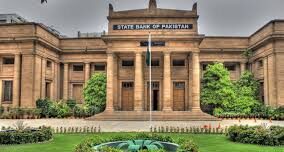Karachi, June 15, 2020: Ismail Suttar, President of the Apex Body of Manufacturers, The Employers Federation of Pakistan (EFP), has said that the federal budget 2020-21 lacks out-of-the-box solutions to jumpstart economy, cut down costs of manufacturers, create jobs and incentivize exporters amid reduction in business orders.
In a Statement, he said that broader policies and incentives were expected to induce growth in breadwinning industries, such as reduction in cost of electricity and gas. However, it is good to see that sectors that performed well in the past Fiscal Year (FY), such as agriculture that grew by 2.67 percent, were provided relief and investors eyeing to set up factories in Gwadar free zone got their cost of raw materials nullified.
“Seeing from another angle, the budget has come in a very uncertain and pressing time for Pakistan but it is not a mandatory requirement of the constitution to present it when presenting it will cause wide scale uproar by the business community. Instead, it could have been postponed. The GDP is revised down to negative 1.5 percent and unemployment is predicted to hit 18.7 million people in the country. Hence, the highly ambitious target of Rs. 5 trillion in tax collection, for example, makes little sense”, he added.
EFP president stated that all tall claims aside, the government does have to some extent tried to relieve industrialists. The removal of custom duties on 90 tariff lines with 40 exclusively designed for manufacturers and 0 percent sales tax on local-exporting of components for further processing into the special economic zone to attract investment can be counted. Last year, the EFP proposed to link FBR with NADRA and in this budget the government has revealed to establish FBR-business integration to ensure compliance, which is appreciable.
Ismail Suttar said EFP in the last budget also proposed formation of industries in small towns, on 25-year lease to foreign investors with a condition that investing companies bear full cost of land in 5-year installment plans.
During this time, if the land remains barren or the operations do not generate employment then the government must seize occupation. “Pakistan has many challenges in upcoming FY such as depressed real estate sector, sub-par electricity tariffs and the lack of infrastructural development. Large Scale industries have already contracted by 0.42 percent to negative 2.69 percent and remittances that are considered the life-line of the economy, are bound to shrink in the present scenario. Therefore, time has come to diversify exports away from primary markets toward non-traditional ones such as Africa where the EFP is currently working to open new trade channels” he opined


























































































































































































































































































